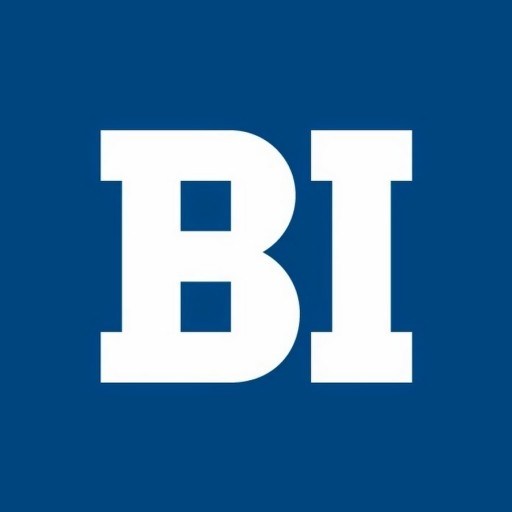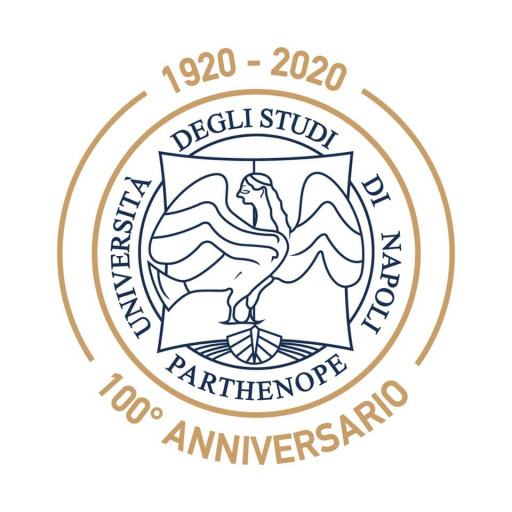The Bachelor's degree programme in Business Administration at BI Norwegian Business School offers students a comprehensive education designed to equip them with the essential skills and knowledge required to excel in the dynamic world of business. The programme provides a solid foundation in core areas such as management, marketing, finance, and organizational behavior, allowing students to understand the complexities of modern enterprises. Throughout the programme, students are exposed to a blend of theoretical frameworks and practical applications, ensuring they develop both critical thinking and problem-solving abilities. The curriculum emphasizes leadership, strategic decision-making, and innovation, preparing graduates to thrive in various industries and roles within the global marketplace. Students have opportunities to engage in real-world projects, internships, and collaborations with industry partners, fostering valuable networks and practical experience. BI Norwegian Business School is renowned for its international environment, and the programme is designed to promote intercultural competence and global perspectives, which are vital in today's interconnected economy. The programme's flexible structure allows students to tailor their studies through electives and specializations, aligning their education with personal interests and career ambitions. Additionally, students benefit from the university's strong links with the business community, access to experienced faculty, and cutting-edge research. Upon graduation, students are well-prepared to pursue careers in management, consulting, entrepreneurship, and other roles demanding advanced business acumen. The programme also offers a pathway to further studies and specialization within the field of business and management. Overall, the Business Administration programme at BI Norwegian Business School is committed to fostering innovative, responsible, and ethical future leaders who can make a positive impact in the global business environment.
Programme structure
The academic year at BI is divided into two semester, one in the autumn and one in spring. There are exams at the end of each semester. This programme structure provides an overview of which courses you will be taking and when you will be taking them.
During the third year of the programme, you will take courses from aspecialisation of your choosing. Select the specialisation to see which courses they contain.
Finance
An economy’s financial markets are critical to a country’s overall development. Therefore, the finance industry is universally important, as it is essential to value creation, resource allocation, poverty reduction, and growth in a country. As one of the few, Norway’s financial system coped well with the global financial crisis, proving that the Norwegian financial industry is among the most efficient in Europe, with cutting-edge expertise and a great platform for research and development.
BI’s internationally renowned Finance faculty prepares you for an industry that is facing rapid change, digitalisation, automation, new competency requirements, increased innovation and new market entrants. Additionally, you will benefit from excellent links to key financial institutions and employers, the backbone of the Norwegian economy.
International Business
International Business (IB) matters are among the top two or three issues on a CEOs' strategic agenda as they consider the international environment critical to their firm’s future success. IB is about companies engaging in cross-border economic activities such as trade, and it plays a crucial role in the economy as one of the best anti-poverty, pro-growth and pro-development tools in history. However, we must recognise the existent problems in the global economy, which require a real response and leadership.
Norway is an exemplar global citizen, where leadership joins generosity and a true commitment to globalisation. Leadership - being a founding member of the World Trade Organisation and an influential player in the international community. Generosity - having donated many billions, Norway is one of the largest contributors in helping least-developed countries tackle their trading infrastructure constraints by building the skills and capacity necessary to trade.
BI prides itself in having world-class faculty, close links to the international business community, and a participatory teaching style. The International Business specialisation combines these characteristics with a tailored programme of electives you can handpick, an internship at a leading institution, or an exciting exchange experience.
Shipping management
Ships transport more than 90% of the world’s trade. Shipping is one of the most important sectors in the global economy, and Norway is one of the world’s largest and most advanced maritime nations in the world. Norway is an advocate for high international standards in the global shipping industry, and BI complements this with a leading Shipping Management programme that prepares you for the challenges faced by the transport sector today.
Application Documents
1. Transcripts
Transcripts and certificates from all previous academic education should be submitted. Copies of transcripts and degrees should be certified as true copies and include an overview of the grade scale used, indicating best and poorest grade and last pass grade. Transcripts not in English or a Scandinavian language must be accompanied by a certified English translation.
All applicants are required to send an official Transcript of Grades from every school and/or university they have attended.
2. English test
For all international and Norwegian applicants
A satisfactory English language test is required for all applicants, with minimum scores:
- TOEFL – 550 (paper based) or 78 (internet based)
- IELTS Academic – 6.0
- Pearson PTE Academic test - 55
- University of Cambridge, Certificate in Advances English - B
- The European Language Certificate (telc), telc English B2-C1 University
Institution code TOEFL: 0529
We give exemptions from the English test for the following applicants:
- Students who have completed International Baccalaureate Diploma programme and have achieved IB Diploma or IB Diploma programme course results issued by IBO
- Students who have completed their high school in the USA, New Zealand, Canada, Australia, Ireland or the UK
- Students who have completed a Bachelor degree in one of the above mentioned countries
In the section for the English test, please submit a word document stating that you are applying for exemption based on the background that pertains to you.
3. Letter of motivation
In the Letter of Motivation you should explain what your ambitions/dreams are and how this relates to your choice of programme at our school. We would also like to know why you want to study in Norway. The Letter of Motivation should be about 1 page.
4. CV/Resume
A short CV/resume listing your education (school name, degree, and dates, and number of years) and work experience (employer's name, type of work, time of duration, dates, etc.) as well as personal information, including extra-curricular activities. Most importantly, include your full postal/mailing address and your e-mail address. The CV must be typed.
5. Letter of recommendation
A letter assessing the applicant's character, traits, strengths and abilities is also required. This letter of recommendation will provide us with insight when evaluating the applicant's competency and potential for a Bachelor’s degree programme. This letter cannot be written by anyone who is a member of the applicant’s family or circle of friends. Please note that recommendation letters older than three years will not be accepted.
6. Copy of passport
All applicants must include a certified true copy of their passport showing nationality, name and valid dates. Please provide certified true copies of previous residency permits to Norway as well.
7. Financial plan
All international applicants must submit a personal financial plan. The financial plan is a general overview of how you intend to finance your degree and living expenses. Please click on the link to download the financial plan template.
The financing of the Business Administration program at BI Norwegian Business School is structured through a combination of tuition fees, scholarships, and government funding. As Norway's leading business school, BI offers this program primarily to domestic and international students who pay tuition fees that vary depending on the student's nationality and level of study. For international students, the annual tuition fee for the Master of Science in Business Administration typically ranges around NOK 80,000 to NOK 130,000. Norwegian students and students from EU/EEA countries may benefit from limited reduced fees or exemptions based on national regulations.
BI Norwegian Business School funds its operations through these tuition fees, which constitute a significant portion of its budget. This income supports faculty salaries, campus maintenance, research activities, and the development of new courses and educational resources. In addition to tuition revenue, the school actively seeks government grants and funding from Norwegian educational authorities to support research projects, faculty development, and student services. These contributions help subsidize costs and maintain high-quality education standards.
Scholarships play a crucial role in enabling a diverse student body, especially for international students who may not have access to Norwegian student loans or support schemes. BI offers various scholarships based on academic excellence, leadership potential, and financial need. Some scholarships are sponsored by corporate partners and alumni, further enhancing the financial ecosystem supporting the program.
Students may also participate in student loan schemes provided by the Norwegian State Educational Loan Fund (Lånekassen), which offers financial support to eligible Norwegian students. International students from certain countries may be able to access similar loans or grants, depending on bilateral agreements.
The school also engages in partnerships with private companies and organizations, which provide sponsorships and funding for specific programs, internships, and research initiatives. These partnerships can include funding for executive education and tailored corporate training programs.
Overall, the financial structure of the Business Administration program at BI Norwegian Business School relies upon a mixture of tuition income, government grants, external sponsorships, and scholarships. This diversified approach helps ensure the sustainability, quality, and accessibility of the program, allowing BI to attract top talent and maintain its reputation as a leading business education provider in Norway and beyond.
The Bachelor in Business Administration at BI Norwegian Business School is a comprehensive undergraduate program designed to equip students with a solid foundation in business principles and management skills. The program emphasizes theoretical knowledge combined with practical applications, preparing graduates for diverse careers within the corporate world, public sector, or further academic pursuits. Students enrolled in this program have the opportunity to engage in a dynamic learning environment that incorporates case studies, group projects, and internships, fostering teamwork and leadership qualities essential in today's competitive business landscape. The curriculum covers core areas such as finance, marketing, management, organizational behavior, and economics, ensuring a well-rounded understanding of business operations. Additionally, the program offers specializations that allow students to tailor their education according to personal interests or career goals, including areas like international business, sustainable management, and entrepreneurship. Students benefit from BI Norwegian Business School's strong connections with industry stakeholders, providing opportunities for networking, guest lectures, and real-world project collaborations. The program is internationally oriented, with opportunities for exchange semesters at partner universities abroad, enhancing global perspectives and cultural awareness. Graduates of the Bachelor in Business Administration are well-positioned to pursue master's degrees or enter the workforce directly, with many alumni securing positions in consulting firms, financial institutions, marketing agencies, and multinational corporations. The program's teaching language is primarily English, accommodating international students and preparing Norwegian students for global careers. Overall, this program is designed to develop analytical, strategic, and operational skills essential for effective business management in a complex and rapidly changing global environment.










